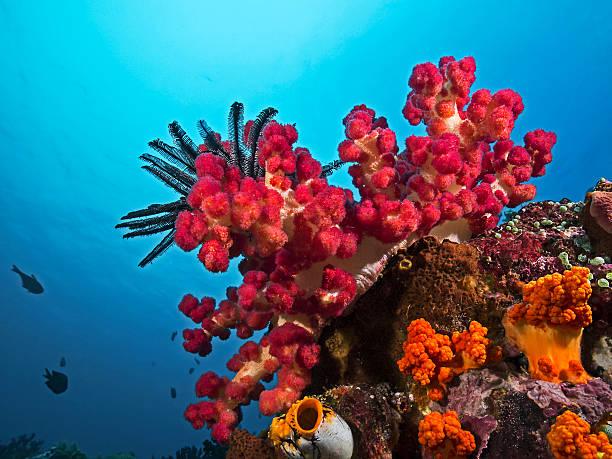إعلان مُمول
Comprehensive Guide to Coral Care and Maintenance

Introduction
Coral husbandry is an essential aspect of maintaining a vibrant and healthy marine aquarium. Whether you’re a seasoned aquarist or a novice, understanding the fundamentals of coral care is crucial for the success of your underwater ecosystem. This guide aims to provide a thorough overview of coral care and maintenance, covering essential topics from water quality to feeding practices, to ensure your corals thrive.
Understanding Coral Needs
To effectively practice coral husbandry, it is crucial to understand the specific needs of coral species. Corals generally require stable water parameters, including temperature, salinity, and pH levels. For most reef corals, the water temperature should be maintained between 72-78°F (22-26°C), salinity around 1.025 specific gravity, and pH levels between 8.1 and 8.4. Regular testing and adjustments of these parameters are vital to prevent stress and promote healthy growth. Additionally, corals need adequate light to perform photosynthesis, so providing the appropriate lighting system that mimics natural sunlight is key.
Feeding and Nutrient Management
Coral husbandry also involves proper feeding and nutrient management. While many corals have a symbiotic relationship with zooxanthellae (microscopic algae) that helps them derive energy from light, some corals benefit from additional feeding. This can include phytoplankton, zooplankton, or specially formulated coral foods. Feeding should be done carefully to avoid overfeeding, which can lead to water quality issues. It is also essential to maintain appropriate nutrient levels, as excessive nutrients can lead to algal blooms and other problems. Regular water changes and the use of high-quality filtration systems can help manage nutrient levels effectively.
Maintenance and Care Routines
Regular maintenance is a cornerstone of effective coral husbandry. Routine tasks include monitoring water quality, cleaning the aquarium, and checking the health of your corals. Algae and detritus buildup can be managed through mechanical filtration and regular tank cleaning. Additionally, observing corals for signs of stress or disease is important for early intervention. Common issues include bleaching, which can result from sudden changes in water parameters or inadequate lighting. Promptly addressing these issues can prevent more serious problems and ensure a healthy environment for your corals.
Conclusion
Successful Coral husbandry involves a combination of understanding coral needs, managing feeding and nutrients, and maintaining a regular care routine. By carefully monitoring water conditions, providing appropriate feeding, and performing consistent maintenance, you can create a thriving marine environment for your corals. Whether you’re just starting or looking to refine your coral care practices, these guidelines will help you achieve a beautiful and healthy reef aquarium.
الأقسام
إقرأ المزيد
╰┈➤Product Name —Smart Hemp Gummies Canada ╰┈➤Availability — Online ╰┈➤Where to Buy — Click Here to Rush Your Order from the Official Website Smart Hemp Gummies offer a convenient and enjoyable way to experience the potential benefits of hemp. With their non-psychoactive properties, ease of use, and potential health benefits, they have...

In today’s competitive job market, the right certification can make all the difference. SAP (Systems, Applications, and Products in Data Processing) is one of the most widely used enterprise resource planning (ERP) solutions globally. With businesses across industries increasingly adopting SAP for data management, analytics, and resource planning, the demand for skilled SAP professionals...



